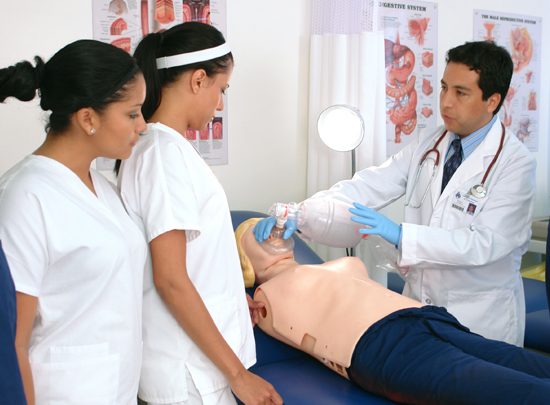
Miami Medical Assistant Courses Familiarize Students With Common Equipment
Having a Medical Assistant diploma or degree offers you the key to a varied medical career, where you will have a mix of administrative and clinical duties. The medical assistant education you receive offers real-world experience and hands-on training with a variety of medical equipment that you may use on the job.
Equipment Used In Administrative Aspects Of The Job
In most settings, medical assistants use their knowledge of computer software to perform basic office tasks and manage patient records. They would use the computer, but also the fax machine, copy machine, scanner and basic office machines. Medical Assistants will schedule appointments and work on the phone with patients, vendors and other professionals to obtain and convey information.
A degreed professional, with an Associates in Medical Assisting Technology from CBT Technology Institute might also become involved in medical coding and billing. In order to properly categorize each patient condition, diagnosis, and treatment or procedure performed, the assistant would use ICD-10 guides and procedure codes to properly capture the condition and submit paperwork to Medicare, Medicaid and medical insurance companies with the proper coding.
Equipment Used In Clinical Settings
Medical assistants typically perform some clinical duties as well, such as taking vital signs with a blood pressure cuff, and patient temperature with a thermometer, and recording them on a paper chart or a computerized record.
They might be required to draw blood using single needles and collection vials or request a urine specimen that they use for basic tests in the lab. In addition, they may operate an ECG machine, and assist the doctor in examinations by following instructions to provide the correct medical instrument or supply upon request.
A degreed professional is prepared to do more extensive lab work and testing with equipment.
Equipment For Specialized Settings
Some medical assistants, typically those with degrees, may choose to go on to more specialized jobs. For example, in medical assistant school students are taught to use an x-ray machine and are capable of taking basic x-rays in a clinical setting. Those with degrees, however, may find themselves working in clinics, medical laboratories, hospitals, or ambulatory care centers where they use more sophisticated equipment to take x-rays for OB/GYN, sports injuries, or other specialty fields.
In a cardiovascular department or clinician’s office, a degreed medical assistant who may have taken extra coursework, may have more detailed knowledge of physiology and anatomy to work and perform noninvasive procedures for cardiovascular studies, sonograms, echocardiography and cardiac pacing. Some of the special equipment that a medical assistant might use includes Cardiac Monitors, EKG (Electrocardiogram) Equipment, Heart-Lung Bypass Machines, Stress Test Systems, Intra-Aortic Balloon Pumps, Infusion Pumps, AEDs, Defibrillators and even workout equipment.
Most medical fields have their own medical equipment that requires growing expertise. For example, medical assistants who work with ophthalmologists learn to use a wide range of specialized equipment to do special vision tests that show whether the eye muscles are functioning correctly, measure the range of vision, and do certain steps in the diagnostic vision examination. Some of the equipment that helps them to do their job include ophthalmic retinoscopes, lensometers, otoscopes, and ophthalmoscopes.
Which Medical Assistant Program Is Right For You?
Medical assistants with a diploma generally start out in entry-level positions as they gain experience; some find themselves in a more specialized area as they acquire on-the-job training. However, having a degree usually makes medical assistants ready to perform more advanced procedures and use more sophisticated equipment earlier in their career. You can even pursue a degree in health IT here at CBT.edu. In either case, with experience and additional coursework, they can acquire proficiency.
At CBT Technology Institute, you can choose from a Medical Assistant Diploma or an A.S. in Medical Assisting Technology. For information about either program call CBT today at 786-724-1478.
